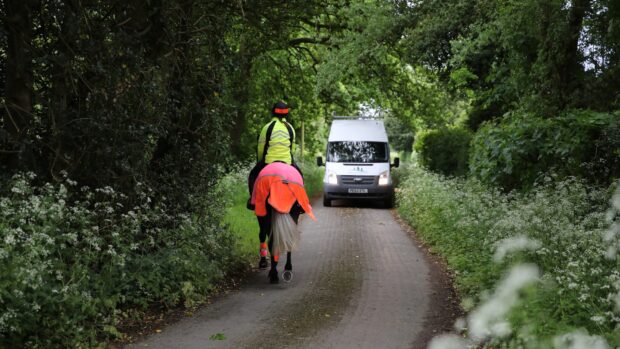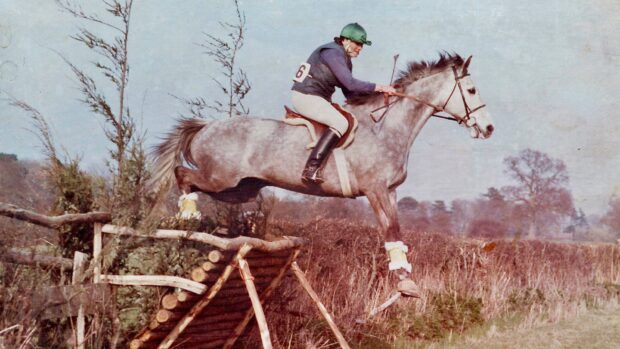Expert advice from HORSE magazine on how to cope with a horse that suffers from nerves when showjumping at competitions
Q: I own a grey mare that jumps brilliantly at homeand never refuses. My problem begins at competitions or around other horses – she always gets eliminated at the second or third fence, usually going away from home.
I am sure she’s being naughty and nappy as the fences we are jumping are quite small, and she has jumped this height before. I have had her back, teeth and saddle checked. Can you help?
Liz Clemence BHSII replies: At home your horse doesn’t have new sights and sounds to distract her. However, it is important she respects you and remains attentive and obedient wherever you ride her, and you may have to take a firmer approach to achieve this.
When you’re schooling your horse, ensure she goes forward freely and is balanced and obedient to your leg aids- transitions will help. Keep fences to a height that you feel confident with.
As your partnership builds, things should improve. Here are some helpful points.
- Regular lessons, or jumping courses and clinics, will give her thechance to work around other horses while still having to concentrate. You will have experts there to sort out problems, and you can both gain experience of different fences.
- Hunter trials might encourage her to go into her fences more freely. It may help to compete in a few pairs classes following a schoolmaster, then encourage her to take the lead once she has settled.
- Walk your competition courses carefully.
- Before you begin your round, make sureshe is worked in and obedient, both on the flat and over practice fences.
- Ride positively into fences as your horse will sense hesitation or lack of concentration from you and may use it to her advantage.
- When you are jumping, use the space available to you sensibly and ride a good line into every fence.
- Ride your horse forward from your leg into a constant rein contact and avoid getting in front of the movement, as this will weaken your forward driving aids.
- Keep her attention between fences and always think forward to the next fence.
- Tactfully use your whip if necessary to create more impulsion into fences.
Read more advice on coping with nerves:



